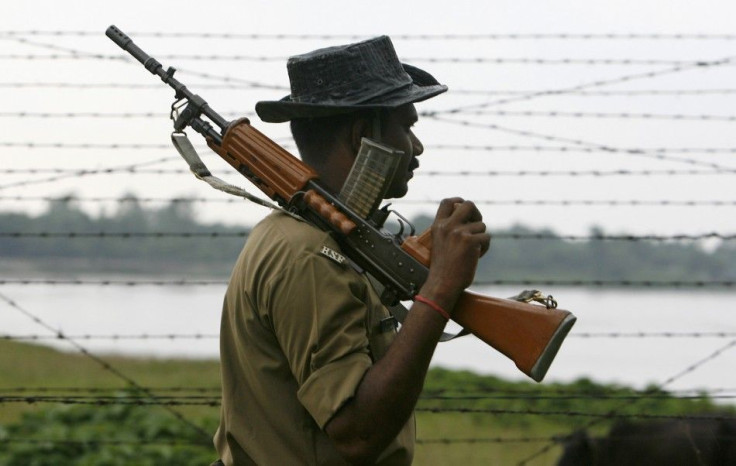India-Bangladesh Border: The ?Berlin Wall? Of Asia

As Bangladeshi security forces tighten the borders along its eastern front to block a large influx of Muslims from riot-torn Myanmar, a somewhat similar scenario is playing out about 500 miles to the west on the Bangladesh-India frontier.
Except on this border it is Bangladeshis seeking to illegally cross into India -- and facing a harsh response from Indian security officials.
Human rights activists charge that not only are Indian border police -- the Border Security Force (BSF) -- turning back Bangladeshis seeking refuge, but they also are committing grave abuses on these desperate people, including acts of torture and even murder, in defiance of the laws of both countries and a violation of promises made earlier to exercise restraint when dealing with illegal immigrants, refugees and smugglers.
“The Border Security Force has reverted to its previous tactics of unilaterally punishing suspects, defying orders from Delhi issued last year to … protect the right to life,” said Meenakshi Ganguly, South Asia director at Human Rights Watch (HRW).
“But the central government [of India] is also responsible, since it has failed to hold perpetrators accountable. Justice is the best deterrent against further violations.”
HRW estimates that Indian border officers have killed almost 1,000 people at the Bangladesh-West Bengal border over the past decade (including both Bangladeshi and Indian nationals).
Attempts by local residents to file complaints against such actions have led to threats and intimidation by the police, HRW noted.
Nongovernmental organizations in both Bangladesh and India have provided eyewitness accounts of border police shooting and killing migrants and smugglers with impunity.
The border between the two countries is rife with smuggling and other illegal activities, which the BSF is legally bound to investigate. But critics charge that too often the BSF is taking upon itself to prosecute and punish suspects without any pretense of conducting an investigation.
Banglar Manabadhikar Suraksha Mancha (MASUM), a Kolkata-based NGO, recently documented evidence of torture by BSF forces along the border and have demanded, along with HRW, that Indian government officials investigate.
Kirity Roy, a prominent Indian human rights activist, told the Sydney Morning Herald newspaper: “'India and Bangladesh are friendly countries, they are not enemies. But the Indian government's paramilitary organization, the Border Security Force, they are … trigger happy, they are killing Indians and Bangladeshis without discrimination. And they are killing with impunity because they are never charged or given any punishment.”
Roy added: ''The BSF should protect the border and stop people crossing illegally, but they cannot torture or injure or kill people. That is not their job.''
BSF have repeatedly asserted that they have killed migrants, smugglers and others along the border only in self-defense. Nonetheless, after fielding complaints from Bangladeshi government officials, the BSF director-general Raman Srivastava vowed to maintain utmost restraint on the border and also to provide his troops with non-lethal weaponry.
HRW remains skeptical.
“It is time for the Indian government to keep its promises to end abuses and hold its forces accountable, said Ganguly of HRW. At the same time, the Bangladeshi government should publicly demand that the Indian government end this scourge of violence along their border.
Aside from smugglers India must contend with huge waves of illegal immigration from Bangladesh. Thus, some people in India's state of West Bengal -- beleaguered by a massive influx of Bangladeshis ever since the 1971 war of independence -- likely turn a blind eye to unconfirmed reports of BSF forces shooting hundreds of migrants on sight.
India is presently constructing a 2,500-mile border barrier made of concrete and barbed wire to put an end to all illegal immigration from Bangladesh. The project is said to cost $1.2 billion and there is no completion date yet.
© Copyright IBTimes 2024. All rights reserved.











